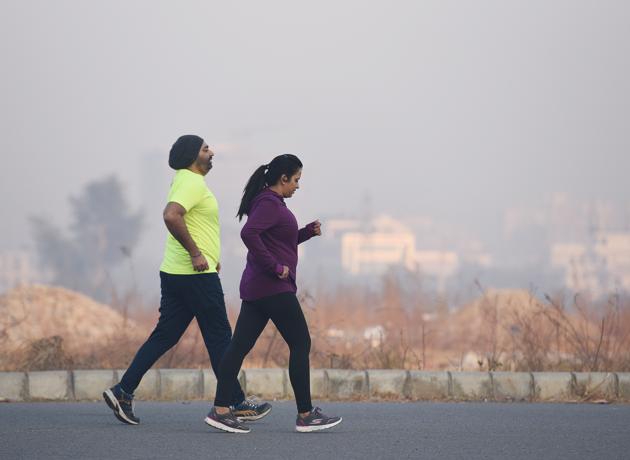Open burning of waste spikes air pollution in Gurgaon
In November, the MCG collected ₹3,80,000 by way of spot fines for open waste burning
The number of waste burning cases have increased in the city over the last 10 days. As per the data released by the Municipal Corporation Gurugram (MCG), on an average, 12 cases of waste burning are reported in the city every day. The MCG has issued challans (fines) to 61 violators in the last 10 days.

This is alarming as last month, on a single day, the number of waste burning cases were found to be less than 4, as per data available with the pollution department and the MCG.
This month, the MCG has collected a total of ₹3,80,000 by way of spot fines for open waste burning.
“In October, 15 challans were issued for open waste burning. The cases shot up to 76 in November,” Sudhir Chauhan, senior town planner (STP), MCG, said.
On Thursday, the city’s air quality index, at 312, was marked ‘very poor’. The figure was put out by the Central Pollution Control Board (CPCB). The air quality in the city has deteriorated over the last few days and it has been blamed on a steady dip in temperature.
Cases of open waste burning has increased, as people resorted to making fires to keep warm. The minimum temperature in past one week has been hovering around 8°C.
“Our teams found that people across the city are making fires from waste to protect themselves from the cold. This is adding to the concentration of carbon monoxide (CO), hydrocarbons (HC), particulate matter and other pollutants in the atmosphere,” JB Sharma, regional officer, Haryana State Pollution Control Board, said.
Read I 21 fined for open waste burning
The National Green Tribunal (NGT) has banned open burning of waste in the light of declining air quality in the city and has asked authorities to enforce the Graded Response Action Plan (GRAP) to mitigate air pollution.
Air Quality Index (AQI) measures the level of pollutants in the atmosphere which can cause life-threatening health issues and can be categorised into five levels — from ‘good’ to ‘severe’.
On November 17, the NGT had directed Delhi and neighbouring states to implement GRAP whenever the air quality deteriorates beyond ‘severe’.
Stay updated with all the Breaking News and Latest News from Mumbai. Click here for comprehensive coverage of top Cities including Bengaluru, Delhi, Hyderabad, and more across India along with Stay informed on the latest happenings in World News.
Stay updated with all the Breaking News and Latest News from Mumbai. Click here for comprehensive coverage of top Cities including Bengaluru, Delhi, Hyderabad, and more across India along with Stay informed on the latest happenings in World News.





